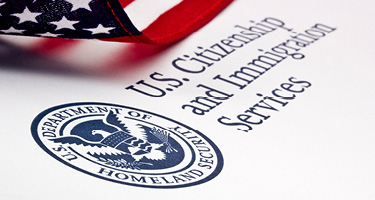There is an undeniable shortage of physicians in the U.S. Approximately 83 million people in the U.S. live in areas with limited access to primary care doctors. The Association of American Medical Colleges (AAMC) reports that the U.S. could see a shortage of up to 124,000 physicians by the year 2034.
Hospitals and medical practices increasingly rely on international medical graduates (IMGs) to fill their vacancies. IMGs are those physicians who have graduated from a non-U.S. medical school. If they desire to practice in the U.S., they must complete their residency and fellowship training in the U.S. There are two visa types (H-1B and J-1) used for IMGs completing these training programs, depending on the policies of the program. The J-1 visa requires that all IMGs return to their home country for two years after training. If they would like to stay and practice medicine in the U.S., they must obtain a waiver of the two-year residency requirement.
There are various ways to obtain a J-1 waiver, but here, we will focus on the Interested Government Agency (IGA) basis for waivers and outline the programs available to J-1 physicians. All programs require a service commitment in a health professional shortage area and an executed contract with an employer sponsor located in such an area.
Each program has its unique prerequisites, but a common requirement for all of them is that physicians must secure an offer of employment from a healthcare institution within the United States. This employment should involve full-time patient care for medically underserved populations. The healthcare facility's location must be in an area designated by the U.S. Department of Health and Human Services as a Health Professional Shortage Area (HPSA) and/or Medically Underserved Area/Medically Underserved Population (MUA/MUP).
Both the physician and the sponsoring facility must commit to maintaining the physician's employment in the shortage area for a duration of three years. This three-year service period must be completed by the physician while in H-1B status. After successfully fulfilling the three-year commitment, the J-1 physician's two-year home residency requirement is officially waived. At this point, the physician becomes eligible to apply for permanent resident status.
Here is an overview of the programs available:
Conrad 30 Waiver Program
Each State Department of Health in all 50 states administers its own program, granting up to 30 waivers for physicians each year. As a result, each state program has its own specific requirements, application process and timeline. The location of employment must be within the state sponsoring the waiver and must be within a federally designated HPSA or MUA/MUP. Many states receive more than 30 applications, and an increasingly diminishing number of states routinely do not utilize all 30 of their allotted waivers each year.
Further, states have the discretion to assign up to 10 of their 30 waivers annually to J-1 physicians whose location of employment is not within a HPSA or MUA/P if the physician will provide care to patients who reside in shortage areas (known as the “FLEX 10”).
U.S. Department of Health and Human Services (HHS) Waiver Program
Unlike Conrad 30, there is no limit on the number of available waiver slots. HHS waivers are open to physicians who intend to practice in primary care fields, including family medicine, general internal medicine, general pediatrics, obstetrics & gynecology and general psychiatry. These physicians must have completed their primary care or psychiatric residency training programs within 12 months before commencing employment with the sponsoring facility/institution. Consequently, specialists and many J-1 physicians with fellowship training are ineligible. Hospitalists do qualify in most cases if they meet the above requirements. Further, the sponsoring employer or facility must be located within a geographic area that has a HPSA score of seven or higher.
Appalachian Regional Commission (ARC) Waiver Program
To qualify for this program, sponsorship must come from a state within the Appalachian Region, which encompasses parts of Alabama, Georgia, Kentucky, Maryland, Mississippi, New York, North Carolina, Ohio, Pennsylvania, South Carolina, Tennessee and Virginia, as well as the entirety of West Virginia. The workplace location must fall within HPSA. Typically, priority is given to physicians planning to practice primary medical care. However, waiver applications for physicians intending to practice specialty medicine may be considered if they can demonstrate a compelling need. In both cases, the physician must have completed a residency in family practice, general pediatrics, obstetrics, general internal medicine or psychiatry. There is no limit to the waivers available each year.
Delta Regional Authority (DRA) Waiver Program
This program is available to facilities that qualify as HPSAs and MUA/MUPs and are within the Delta Regional Authority, which includes Alabama, Arkansas, Illinois, Kentucky, Louisiana, Mississippi, Missouri and Tennessee. This program grants waivers to primary care and specialist physicians, and there is no limit to the number of waivers that can be granted each year.
Southeast Crescent Regional Commission (SCRC) J-1 Waiver Program
This is one of the newest waiver programs to go into effect. IMGs must serve in HPSAs or MUA/MUPs that are located in the SCRC region, which is made up of specific areas of Virginia, North Carolina, South Carolina, Georgia, Alabama, Mississippi and all of Florida. The program is open to primary care physicians and specialists. Physicians must provide care to the indigent, Medicaid and Medicare recipients. There is no limit to the number of waivers available each year. A filing fee of $3000 is required.
Veteran’s Administration J-1 Waiver Program
The Department of Veterans Affairs (VA) has the authority to request a waiver of the two-year home residency requirement for IMGs when there is a compelling need within a VA facility. The work may be related to patient care, research or teaching, and physicians are not required to work in medically underserved areas.
The sponsoring VA facility must demonstrate that there are no available and willing U.S. citizens or lawful permanent resident physicians to fill the position. They must also prove that they have made genuine recruitment efforts to find a qualified U.S. citizen or lawful permanent resident physician for the position. These efforts must be thoroughly documented, and there are specific requirements. The employment opportunity must constitute at least 5/8 of full-time employment within the VHA (Veterans Health Administration). If this criterion is met, the remaining portion of employment must involve a joint appointment with the VHA affiliate.
These stipulations ensure that the VA facility fully explores all avenues to locate qualified U.S. citizens or lawful permanent residents before pursuing a waiver for an IMG, particularly those possessing specialized expertise.
Conclusion
On a positive note, there are lots of options for IMGs to continue practice in the U.S. However, there continue to be substantial limitations for IMGs who have completed their medical residencies and fellowships in the United States and wish to continue their medical careers here. Each of the waiver programs mentioned earlier comes with its own set of restrictions. These restrictions range from annual caps on the number of available waivers (Conrad 30), limitations on the medical specialties in which physicians can practice (HHS) or requirements that the sponsoring facility be located in a specific state or region (ARC, DRA).
Due to the absence of a widely accessible and dependable pathway for IMGs to transition into practicing physician roles, the persistent shortage of physicians in the United States is likely to endure. In the interim, U.S. healthcare facilities and institutions are well-advised to carefully consider the options outlined above and the opportunities they offer when seeking to recruit urgently needed physician positions.

Elizabeth L.A. Garvish founded Garvish Immigration Law Group, LLC in 2011 with the mission to be the "Happiest Law Firm in America." In June 2022, Elizabeth was recognized as a Legal Innovator at the Daily Report’s Georgia Legal Awards and as one of Georgia's Titan 100. She is ranked in the 2023 Chambers USA Guide and was included in the 2023 LawDragon Inaugural 100 Leading Immigration Lawyers Guide. Elizabeth is a frequent speaker and presenter on U.S. immigration topics around the world. She is an active member of the American Immigration Lawyers Association (AILA), serving on various national committees as well as serving as the Past Chair of the Georgia-Alabama Chapter of AILA. egarvish@goimmigrationlaw.com
































